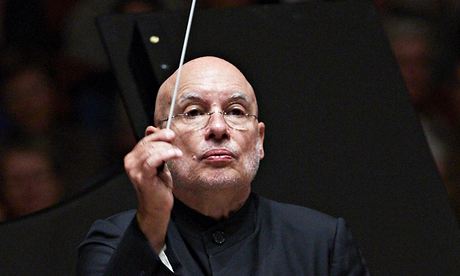
Orchestras generally go on tour with safe, familiar repertoire designed to appeal to the widest possible audience, works that display them and their conductors in the most flattering possible light. But since Dennis Russell Davies became the principal conductor of the Basel Symphony in 2009 he has introduced the orchestra to a wide range of contemporary music, especially by the minimalist composers he has championed fervently, and their seven-concert UK tour this month is devoted entirely to those works.
Four composers are represented. Pieces by Michael Nyman come later in the tour, but for their first concert here Davies and the BSO played music by Arvo Pärt, Philip Glass and John Adams. And by ending with Adams's epic Harmonielehre, Davies also managed to showcase the strengths of his orchestra, the depth of its string tone, liveliness of its woodwind and security of its brass. Ideally that piece needs a roomier acoustic than Warwick arts centre's: some of the climaxes sounded rather restricted, and the tendril-like melodies that wind through the textures of the first movement had to work just a little too hard. But the power and cumulative excitement of the music were as unmistakable as ever.
Davies had begun with Pärt's These Words, a series of warmly harmonised string phrases punctuated by percussion that are suddenly driven to a fierce climax before a brief return to the consoling calm of the opening, and then accompanied soloist Matt Haimowitz in Glass's Second Cello Concerto. Effectively it's a seven-movement suite from the film score that Glass composed for Naqoyqatsi, the third part of Godfrey Reggio's Qatsi trilogy, but it has transferred painlessly to the concert hall. The style of the music is familiar late Glass, though its epilogue is unexpected, as the cell lights upon a folksy tune and the music threatens to turn into Coplandesque Americana.

